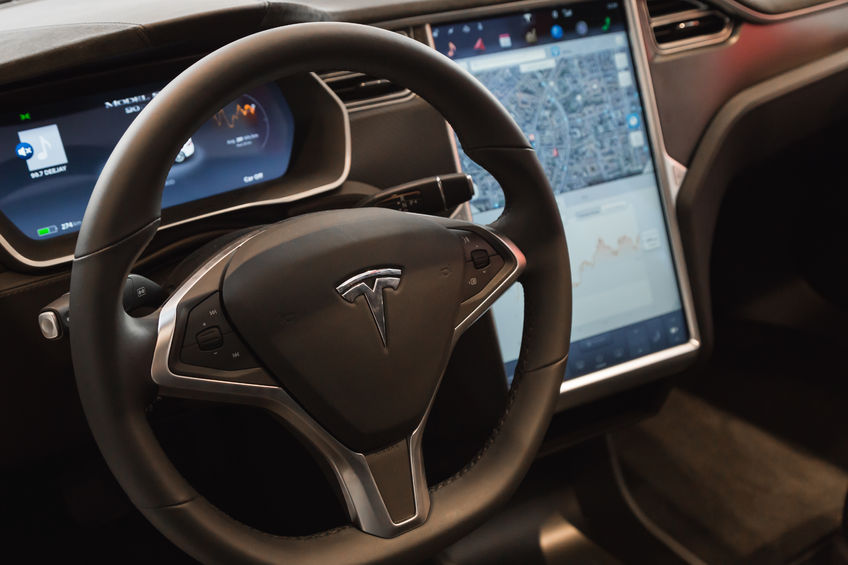Tesla Autopilot Under Investigation
July 13, 2018 | Category: Automobile Accidents | ShareThe National Highway Traffic Safety Administration (NHTSA) is concerned about a May 11, 2018 crash in South Jordan, Utah involving a Tesla Model S which crashed into a fire department vehicle. The 28-year-old female driver told authorities that she was using Tesla’s semi-autonomous driving technology, autopilot, while using her cell phone. In addition, the NTSA (National Transportation Safety Board) is investigating four crashes involving other Tesla vehicles, some of which involve autopilot.
 While fully self-driving cars are not yet available to the public, semi-autonomous cars are already available on the market from manufacturers such as Audi, Mercedes–Benz, Volvo and Tesla. Despite the convenience and built-in safety technology in such cars, semi-autonomous vehicles can still result in accidents.
While fully self-driving cars are not yet available to the public, semi-autonomous cars are already available on the market from manufacturers such as Audi, Mercedes–Benz, Volvo and Tesla. Despite the convenience and built-in safety technology in such cars, semi-autonomous vehicles can still result in accidents.
Autopilot technology is an aid not a substitute for the driver
Tesla’s autopilot technology, according to the company, is intended to be used as an aid to the driver in navigating the road. Tesla advises drivers to focus their full attention on the road and keep both hands on the wheel during operation.
NHTSA has identified five levels of automation ranging from Level 0, which is a car with no automation, to Level 4, which means one that’s fully automated at all times. The NHTSA refers to Tesla’s autopilot as a Level 2 system delivering “combined function automation.”
What the Level 2 description means in practice is that while drivers may not actively be steering their cars or using the accelerator or brakes, they are still responsible for the vehicle and should continue to monitor the road. Crucially, the NHTSA’s definition of Level 2 driving aids includes the warning that “the system can relinquish control with no advance warning, and the driver must be ready to control the vehicle safely.”
Partially self-driving cars can be dangerous
A Desert News of Utah article written by Jay Evensen and published on February 27, 2018 says that today’s partially self-driving cars can be hazardous because they lull drivers into a state of complacency, when in reality those drivers need to be alert and ready to take control at a moment’s notice.
Despite the continuing advancements in driving technology, operators of motor vehicles need to remain cognizant about the capabilities and limitations of their automated driving system. Driver education, including awareness of the vehicle's capabilities and the requirement for continued human input, may be keys to determining respective fault in the case of motor vehicle collisions. Should the vehicle manufacturer, or equipment provider, not provide the correct instructions regarding the use of the semi-automated driving system, or any part of the system is defective, the victim may be able to show it was unreasonably dangerous and negligent.
Fort Myers Car Accident Attorney, Randall Spivey says, “We are available 24/7 to assist you. Please contact our experienced legal team if you or a loved one has been injured in a vehicle accident.”
Fort Myers Car Accident Attorney, Randall L. Spivey is a Board Certified Trial Attorney – the highest recognition for competence bestowed by the Florida Bar and a distinction earned by just one (1%) percent of Florida attorneys. He has handled over 2,000 personal injury and wrongful death cases throughout Florida. For a free and confidential consultation to discuss your legal rights, contact the Spivey Law Firm, Personal Injury Attorneys, P.A., in Lee County at 239.337.7483 or toll free at 1.888.477.4839,or by email to Randall@SpiveyLaw.com. Visit SpiveyLaw.com for more information. You can contact Spivey Law Firm, Personal Injury Attorneys, P.A.in Charlotte County at 941.764.7748 and in Collier County 239.793.7748.

